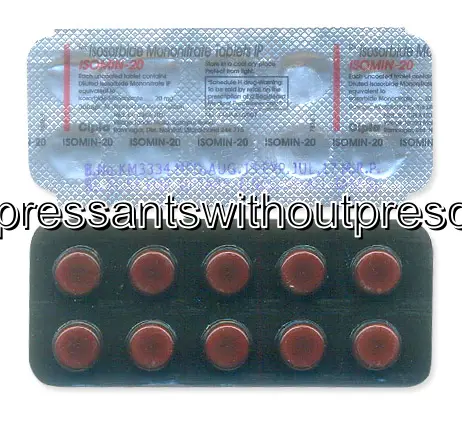| Package | Dosage | Price | Price per Dose | |
|---|---|---|---|---|
| Dosage: 20mg | ||||
| 360 pill | 20mg | NZD535.88 | NZD1.49 | |
| 180 pill | 20mg | NZD303.11 | NZD1.68 | |
| 120 pill | 20mg | NZD227.33 | NZD1.89 | |
| 90 pill | 20mg | NZD189.44 | NZD2.11 | |
| 60 pill | 20mg | NZD146.13 | NZD2.44 | |
| 30 pill | 20mg | NZD89.29 | NZD2.95 | |
| Dosage: 40mg | ||||
| 360 pill | 40mg | NZD700.98 | NZD1.95 | |
| 180 pill | 40mg | NZD365.36 | NZD2.03 | |
| 120 pill | 40mg | NZD246.27 | NZD2.06 | |
| 90 pill | 40mg | NZD194.85 | NZD2.17 | |
| 60 pill | 40mg | NZD143.42 | NZD2.41 | |
| 30 pill | 40mg | NZD78.46 | NZD2.65 | |

Isosorbide Mononitrate Description
Overview of Isosorbide Mononitrate
Isosorbide Mononitrate is a commonly prescribed medication used primarily to prevent and manage angina pectoris, a condition characterized by chest pain caused by reduced blood flow to the heart. It belongs to the class of drugs known as nitrate vasodilators. Its main function is to relax and widen blood vessels, which helps improve blood flow and reduce the heart's workload. Patients often use this medication as part of a long-term therapy plan to control chronic angina symptoms and prevent episodes from occurring.
How Does It Work?
This medication works by releasing nitric oxide in the body, which stimulates the enzyme guanylate cyclase. This process results in increased levels of cyclic GMP, leading to relaxation of the smooth muscles within blood vessel walls. As a result, blood vessels dilate, lowering overall vascular resistance. The vasodilation effect decreases the oxygen demand of the heart and helps to alleviate chest pain. Unlike some other nitrates, Isosorbide Mononitrate provides a sustained release of medication, offering more stable blood levels and longer-lasting symptom control.
Usage and Dosage
Isosorbide Mononitrate is typically taken orally once or twice daily, depending on the prescribed dose and the severity of the condition. It is important for users to follow their healthcare provider's instructions carefully. The medication is usually taken on an empty stomach whether before or after meals, to ensure optimal absorption. Patients should not stop the medication suddenly without consulting their doctor, as it could lead to a worsening of angina symptoms. Dose adjustments are common based on individual response, so regular medical checkups are recommended to monitor progress.
Potential Benefits
Many patients discover that Isosorbide Mononitrate effectively reduces the frequency and severity of angina attacks. The convenience of once or twice daily dosing helps improve medication adherence. The continuous vasodilation effect also contributes to better exercise tolerance and overall quality of life for those with chronic angina. Additionally, its predictable pharmacokinetic profile allows healthcare providers to tailor treatment plans more precisely, resulting in improved symptom control and reduced risks of angina-related complications.
Possible Side Effects
Like all medications, Isosorbide Mononitrate can cause side effects in some users. Common issues include headaches, dizziness, and flushing. These are often temporary and tend to lessen as the body adjusts to the medication. Some individuals might experience low blood pressure, which can lead to feelings of weakness or fainting. Less common side effects include nausea, vomiting, and allergic reactions such as rash or itching. It is vital for users to report any persistent or severe side effects to their healthcare provider for appropriate management.
Precautions and Interactions
Patients should inform their healthcare providers about all medications they are taking, as Isosorbide Mononitrate can interact with other drugs, including antihypertensives, sildenafil (used for erectile dysfunction), and other nitrates. Combining these medications can lead to dangerously low blood pressure. Individuals with certain health conditions, such as severe anemia, head trauma, or increased intracranial pressure, should use the medication cautiously or avoid it. Regular blood pressure monitoring is essential to ensure safety during therapy.
Final Thoughts
Overall, Isosorbide Mononitrate is a reliable and effective option for managing chronic angina. Its ability to provide sustained symptom relief and improve daily functioning makes it a valuable medication for many patients. Proper adherence to prescribed dosages and awareness of possible side effects can help maximize its benefits while minimizing risks. As with any medical treatment, continuous communication with healthcare professionals is crucial to achieve optimal results and maintain overall heart health.